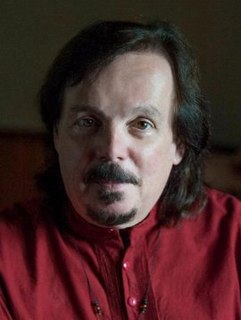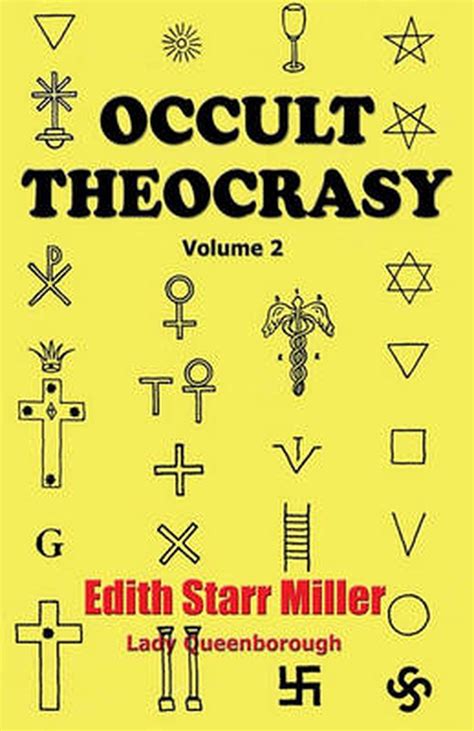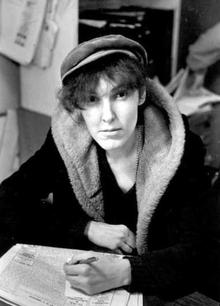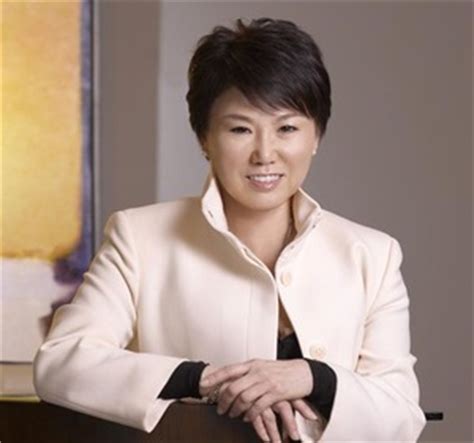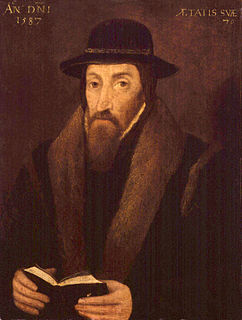A Quote by Raven Grimassi
According to the oral tradition of Witches, we were once the priests and priestesses of a peasant Pagan religion. Members of this secret sect met at night beneath the full moon, for these were the "misfits" and "outcasts" who did not fit into mainstream society. Little has changed over the centuries and the Witchcraft community still embraces individuals frequently rejected in mainstream society. These include gays, lesbians, transgendered individuals, and other people with the courage to live their lives authentically in accord with who they are inside their hearts, minds, and spirits.
Quote Topics
Accord
According
Beneath
Centuries
Changed
Community
Courage
Did
Fit
Frequently
Full
Full Moon
Gays
Hearts
Include
Individuals
Inside
Little
Live
Lives
Mainstream
Mainstream Society
Members
Met
Minds
Misfits
Moon
Night
Once
Oral
Oral Tradition
Other
Over
Pagan
Peasant
People
Priestesses
Priests
Rejected
Religion
Secret
Society
Spirits
Still
Tradition
Were
Witchcraft
Witches
Related Quotes
I mean, when we did 'Families At War,' on Saturday night prime time, people said we were mainstream then. But it wasn't in the least mainstream. The fact that we got that on BBC1 at that time with those ridiculous things, that's as mainstream as we get. We do what we do and people can think that it's mainstream or avant-garde.
The individuals inside are frequently fighting that their individual voices be heard, while the walls of the place, which are the mask, and the perception, are reluctant to give over to the voices of the individuals. Those in the margins are always trying to get to the center, and those at the center, frequently in the name of tradition, are trying to keep the margins at a distance. Part of the identity of a place is the tension between those in the margins, and those in the center, and they all live behind the walls which wear the tradition.
I view Witchcraft as a religion that has evolved over the centuries. I do not consider Witchcraft to be a modern invention. Instead I deal with it in my writings as a Mystery Tradition with long roots to the past. It has always been my position that we don't need an ancient tradition in order to be validated. We just happen to have one.
A true community consists of individuals - not mere species members, not couples - respecting each others individuality and privacy while at the same time interacting with each other mentally and emotionally - free spirits in free relation to each other - and co-operating with each other to achieve common ends. Traditionalists say the basic unit of "society" is the family; "hippies" say the tribe; noone says the individual.
Sometimes we feel that one individual's action is very insignificant. Then we think, of course, that effects should come from channeling or from a unifying movement. But the movement of the society, community or group of people means joining individuals. Society means a collection of individuals, so that initiative must come from individuals. Unless each individual develops a sense of responsibility, the whole community cannot move. So therefore, it is very essential that we should not feel that individual effort is meaningless- you should not feel that way. We should make an effort.
Then the question began to live under my blankets: How did lesbianism begin? What were the symptoms? The public library gave information on the finished lesbian--and that woefully sketchy--but on the growth of a lesbian, there was nothing. I did discover that the difference between hermaphrodites and lesbians was that hermaphrodites were "born that way." It was impossible to determine whether lesbians budded gradually, or burst into being with a suddenness that dismayed them as much as it repelled society.
The third group [of society] are those irresponsible and reckless ones having little regard for the consequences of their acts, or whose religious scruples prevent their exercising control over their numbers. Many of this group are diseased, feeble-minded, and are of the pauper element dependent upon the normal and fit members of society for their support. There is no doubt in the minds of all thinking people that the procreation of this group should be stopped.
It's always intrigued me that amidst the group called slaves there were individuals who were extremely able, who were extremely colorful, who were powerful personalities, who by no means fit the usual images of slaves. They were people who, through their personalities and abilities, were very respected in the community where they lived by both black and white.
The good society was, like the good self, a diverse yet harmonious, growing yet unified whole, a fully participatory democracy in which the powers and capacities of the individuals that comprised it were harmonized by their cooperative activities into a community that permitted the full and free expression of individuality.
Underground comics were produced by individuals - they were the auteur variety, rather than the production-line sort of comic book aimed at pleasing a vast general audience. Mainstream comics never appealed to me: they seemed sterile in their stylistic consistency, and were quickly consumed, the stories interesting only for so long as you were reading them.
The love of wisdom is a way of life; that is to say, it's a set of practices that have to do with mustering the courage to think critically about ourselves, society, and the world; mustering the courage to empathize; the courage, I would say, to love; the courage to have compassion with others, especially the widow and the orphan, the fatherless and the motherless, poor and working peoples, gays and lesbians, and so forth - and the courage to hope.
